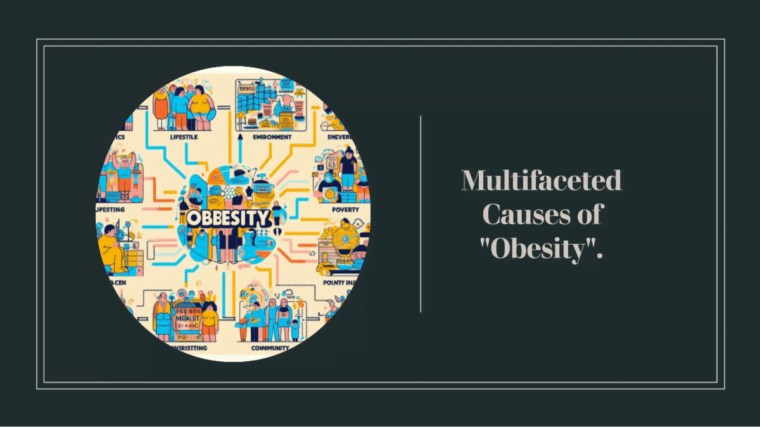Explore the intricate web leading to causes of obesity, from genetic predispositions to environmental factors and psychological influences. Learn how diet, lifestyle, and medical conditions contribute to this multifaceted issue. Discover comprehensive strategies to combat obesity and foster a healthier future.
Genetic Predisposition
Scientific evidence underscores the role of genetics in obesity. The genetic component isn’t a standalone determinant but influences how the body processes and stores fat, manages energy, and regulates hunger. Variations in certain genes can affect metabolic rates and fat storage efficiency. Moreover, familial habits and learned behaviors around food can compound genetic predispositions, influencing eating habits from an early age.
Dietary Habits and Lifestyle
The modern diet is fraught with high-calorie, nutrient-poor options. Processed foods, laden with sugars, unhealthy fats, and artificial additives, have become dietary staples. Portion sizes have inflated, and consumption of fast food and sugary beverages has surged, contributing significantly to excessive calorie intake. Additionally, technological advancements have led to sedentary lifestyles, with individuals spending prolonged hours in front of screens, leading to reduced physical activity levels.
Environmental Influences
Communities lacking access to affordable, fresh, and nutritious foods face a higher risk of obesity. Food deserts, areas devoid of supermarkets offering healthy options, perpetuate unhealthy eating habits. Similarly, neighborhoods lacking safe spaces for physical activity discourage exercise. Socioeconomic disparities limit resources for healthier living, contributing to disparities in obesity prevalence.
Psychological Factors
The relationship between mental health and obesity is intricate. Stress, anxiety, depression, and trauma often lead to emotional eating or disordered eating patterns, acting as coping mechanisms. Moreover, cultural perceptions and societal norms surrounding body image can exacerbate psychological stressors, influencing eating behaviors.
Medical Conditions and Hormonal Imbalances
Certain medical conditions and medications can disrupt hormonal balances, impacting weight regulation. Conditions like hypothyroidism or PCOS can cause weight gain, and medications such as antidepressants or corticosteroids may have side effects leading to increased body weight. Hormonal shifts during menopause can also contribute to changes in body composition and weight gain.
Prevention and Solutions

Addressing obesity mandates a comprehensive approach. Public health initiatives promoting healthier eating habits, enhancing access to fresh and affordable produce, and creating safe spaces for physical activity are crucial. Nutrition education programs, mental health support, and policies encouraging active lifestyles can mitigate obesity’s multifaceted causes.
Conclusion
Recognizing the intricate tapestry of causes contributing to obesity is fundamental in developing effective interventions. Collaboration between individuals, communities, healthcare providers, policymakers, and researchers is paramount to combat this multifaceted issue. By fostering a holistic approach that targets various contributing factors, we can strive towards a healthier future, mitigating the pervasive impact of obesity on individuals and societies.






Leave a Reply Cancel reply